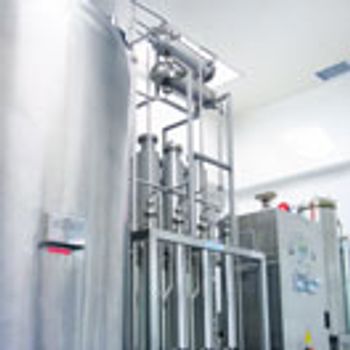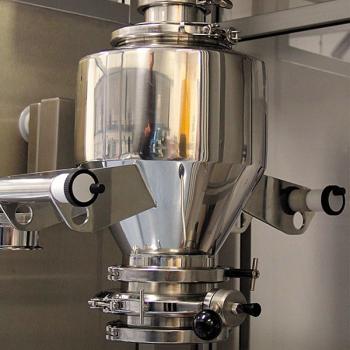
FDA works with industry on strategies for assuring high-quality regenerative medicines.

FDA works with industry on strategies for assuring high-quality regenerative medicines.

Modeling tools help process engineers optimize a biopharmaceutical facility’s capacity.

Drug repurposing, repositioning, and rescue can be faster, cheaper, and target more diseases than traditional drug discovery approaches.

Forced degradation studies can identify stability problems for drug substance and drug products.

Innovation speeds discovery, drives down costs, and improves productivity.

This study shows that the presence of API lumps can be detected by inline NIR, and elaborates on why NIR sensor dimensions and actual measured sample volume by the NIR sensor are important variables for adequate interpretation of obtained results.

Informatics software can be used to address the challenges of quality by design, such as managing impurity data when developing an impurity control strategy.

FDA approves Novartis’ CAR-T therapy, marking the first time a cell therapy based on gene transfer has been approved in the United States for any indication.

Gilead will gain a robust pipeline of cell therapy products, with one lead candidate, a CAR T therapy, anticipated to gain FDA approval in the fourth quarter.

AstraZeneca and Takeda will partner to develop and commercialize MEDI1341, an alpha-synuclein antibody currently in development as a potential treatment for Parkinson’s disease (PD).

Steris added the Amsco 430LS and 630LS sterilizers to its line of medium steam sterilizers.

FDA grants priority review for emicizumab, an investigational bispecific monoclonal antibody, for treating hemophilia A with factor VIII inhibitors.

With £4.5 million (US$5.8 million) in funding, the consortium is tasked with developing a new automated continuous biologics purification unit to make biologic drug manufacturing more efficient.

The first program of this collaboration will focus on the development of a candidate for severe acute pancreatitis.

FDA approves new molecular entity developed by Pfizer for treating a rare form of leukemia in adults.

The withdrawal has been attributed to issues at the biotech company’s manufacturing facility.

The antibody therapeutic failed to meet its primary endpoint in a Phase III study.

The expansion at its Lincolnshire, IL, facility will double the footprint of the site’s range of services, including microbiological evaluation, drug stability studies, and medical devices testing.

The Thermo Scientific Pharma mini implant line is built around the Thermo Scientific Pharma mini HME twin-screw micro compounder.

Artificial intelligence offers a number of opportunities in pharmaceutical drug development and manufacturing, but there are barriers to overcome, notably around how well and how quickly the regulatory environment can adapt and keep pace with to the rapid changes.

The Washington-headquartered biotech firm plans to use the newly purchased facility to produce antibodies for its current and future pipeline.

Following passage by the House in July 2017, the Senate has voted to pass a reauthorization bill for FDA user-fee programs for drugs and medical devices ahead of the user-fee programs’ expiration date.

Safe and effective drug targeting with ADCs requires careful selection of drug, antibody, and linker.

Safe and effective drug targeting with ADCs requires careful selection of drug, antibody, and linker.

Amid contentious debate about “fake news,” peer-review papers offer vital, objective insight.